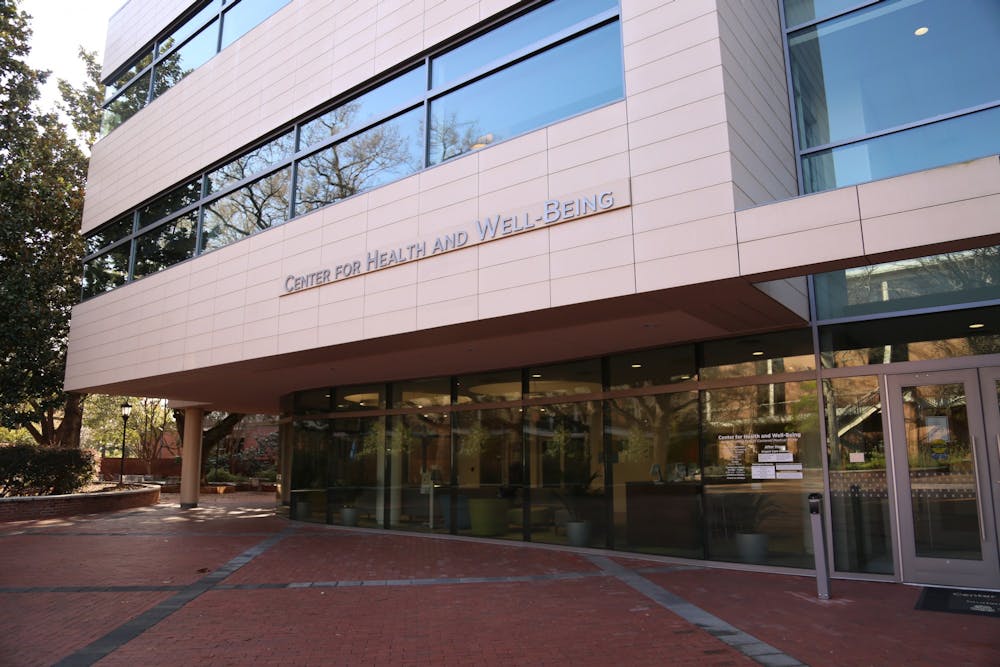The University of South Carolina should resume offering its students in-person counseling and psychiatry alongside safe practices consistent with COVID-19 guidelines.
If you’re a college student right now, even if you’ve successfully avoided contracting COVID-19, you’re likely to have experienced one of its most potent symptoms — pandemic-related anxiety or depression.
College-aged students are among the most depressed demographics in the country. Unsurprisingly, data has shown in recent months that COVID-related depression has affected them and young adults at higher rates than other age groups, according to an article by Hartford Healthcare that referenced Census Bureau statistics. According to the data, 42% of respondents aged 18 to 29 reported anxiety as a result of the circumstances of the pandemic and 36% reported depression.
Those numbers are startlingly high, and, as a result, it is vitally important that college students have access to effective mental health resources on campus.
However, when I recently went to make a counseling appointment for myself, I was disappointed to find that although I had ‘passed’ all of the preliminary COVID-19 exposure and safety questions, the only appointments available to me were online, to be completed on Zoom or over the phone.
Personally, I can say that therapy mostly loses its appeal without its face-to-face component. Don’t take my word for it, though — according to an article by Suzannah Weiss for VICE, “[t]herapists themselves have mixed opinions.”
Weiss shares input from psychoanalyst and psychiatrist Mary Davis, who notes that “people may be slower to open up to therapists they’ve never met in person.” She adds that she will not work with a patient online unless she's had at least one year of working with them face-to-face.
Weiss also shares testimony from clinical psychologist Ryan Hooper, who said in-person sessions have "an emotional energy ... almost like an electricity in the air." While online mediums are not precluded from that kind of moment, in his experience, they weren't as powerful.
The real human interaction that therapy provides is crucial to its success, and without it, accomplishing personal growth goals and attaining the desired therapy experience becomes much more difficult.
The question, then, is whether in-person mental health services can be safely reinstated, or are they too large a risk to the health of the campus community?
To the former, I’d say yes. In fact, I’d say the bigger risk to the health of the campus community is continuing to deny students access to important in-person services such as counseling and psychiatry. There are methods and practices of enabling in-person appointments to safely continue, most or all of which are already instated at USC — it’s just a matter of giving the green light.
For example, I can say from personal experience that before making an appointment with USC’s health services website, I was asked several questions about potential exposure to COVID-19, symptoms, recent travel and the like. The American Psychological Association’s website recommends exactly that as a preliminary action before an in-person appointment, meaning USC already has one step in place towards safely resuming in-person services.
The APA also suggests having "clearly defined" rules to protect physical safety, such as wearing masks and avoiding physical contact. This is very attainable for USC and a good way to approach in-person appointments cautiously. Most of these practices are already in place on USC’s campus, making the reinstating of in-person services even more feasible.
While COVID-19 is certainly a public health risk to be taken seriously, if there are ways to safely proceed with in-person mental health services — which is a proven possibility — they need to be considered just as seriously.
The mental health of USC’s students depends on the resources available to them, and with safety in mind, USC should cautiously expand access to those resources for the good of the community.

